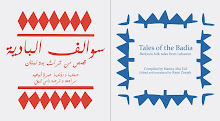قد أنجزت المهمة «على أكمل وجه»، واستطاعت الكتلتان العسكريتان الحاكمتان في البلدين بلورة تصورهما المحافظ والرجعي عن الوضع، وإيصاله إلى أوسع شريحة ممكنة من الناس. وهو تصوّر يفيد بأنّ من أنجز «التغيير» يتحمل وحده المسؤولية عن «الفوضى» الحالية.
طبعاً من وصل إليه ذلك الانطباع هو القطاع الشعبي العريض وغير المسيّس بما فيه الكفاية. وانعدام التسييس لدى هؤلاء انعكس سلباً على النواة الصلبة للمحتجين، إذ فقدوا، خلال أسابيع، تعاطف قطاعات شعبية انحازت إليهم لأنّهم لم يرفعوا في ميادين التحرير شعارات مناهضة للحكم العسكري الرجعي المتحالف مع الغرب. لاحقاً، ظهرت تلك الشعارات، وبدأت
طبعاً من وصل إليه ذلك الانطباع هو القطاع الشعبي العريض وغير المسيّس بما فيه الكفاية. وانعدام التسييس لدى هؤلاء انعكس سلباً على النواة الصلبة للمحتجين، إذ فقدوا، خلال أسابيع، تعاطف قطاعات شعبية انحازت إليهم لأنّهم لم يرفعوا في ميادين التحرير شعارات مناهضة للحكم العسكري الرجعي المتحالف مع الغرب. لاحقاً، ظهرت تلك الشعارات، وبدأت
معها مرحلة تآكل شعبية المنتفضين الراديكاليين، بين القطاعات الداعمة للجيش
I've been saying this since last may. But does anyone listen? noooooo. Some will continue to argue there is no need for politicization and ideology. See where this got you?









+081.jpg)


